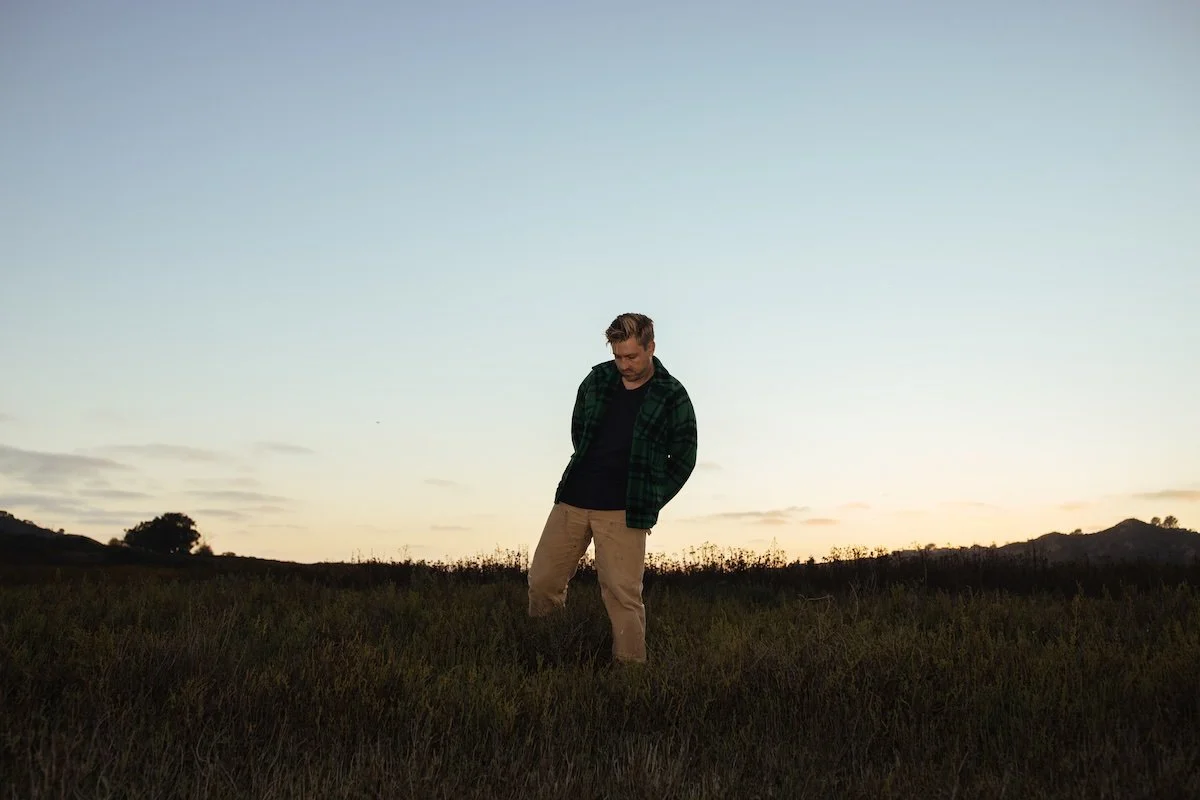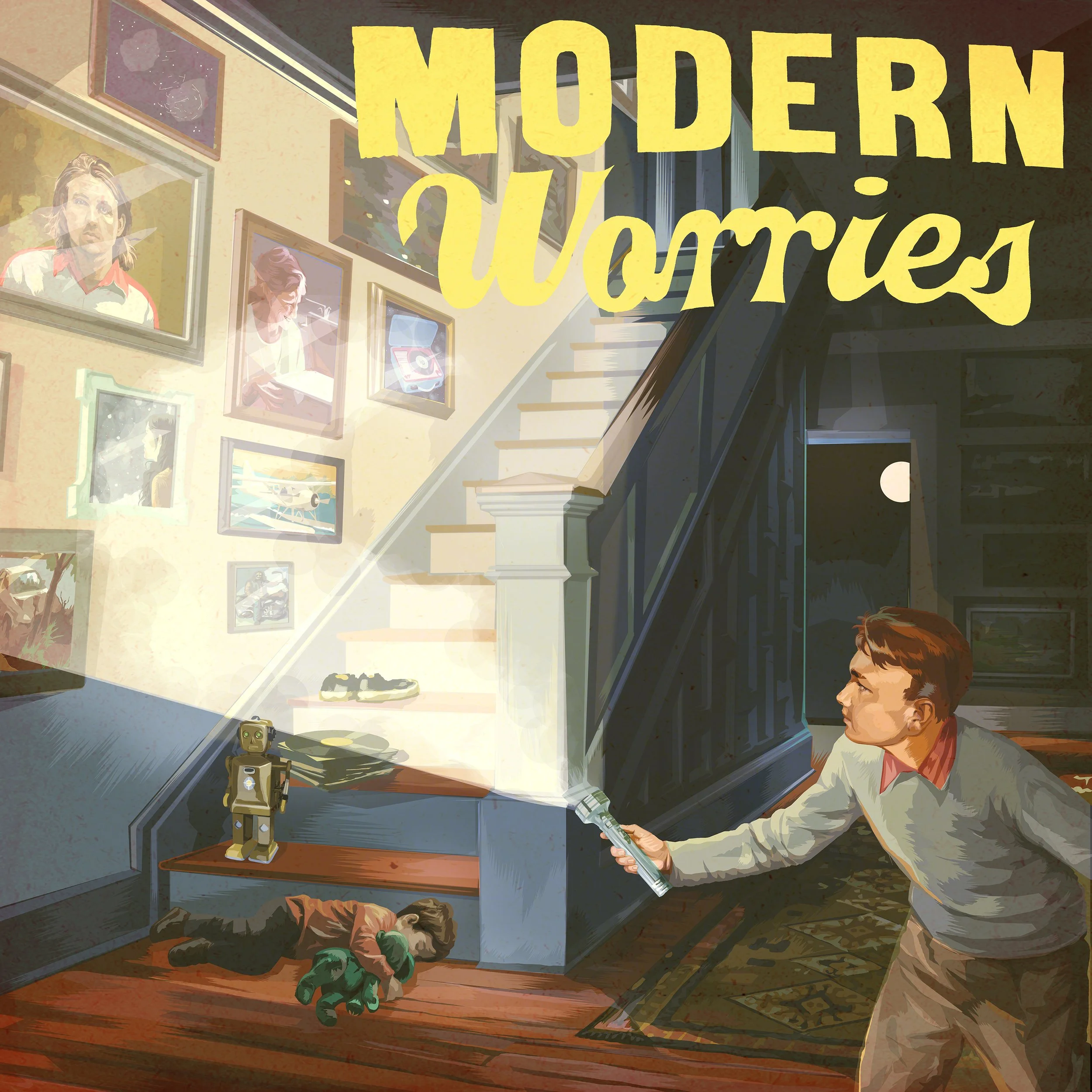
Tyson Motsenbocker
Listen
-
Tyson Motsenbocker contemplates the big things, the little things, and everything in between through his music.
The Washington-born and California-based singer and songwriter alchemizes everyday anxieties and big existential dilemmas into songs that resemble those thoughts we all have but rarely, if ever, say aloud. He’ll zoom way out and ponder the existence of aliens, or he’ll zoom back in as closely as possible just to enjoy the quickest glance of his wife’s smile through a wine glass.
He’s done a lot of reflecting, but now he’s living in the moment and even looking ahead on his fourth full-length LP, Modern Worries [Tooth & Nail Records].
“The record comes at a vulnerable point in my life,” he declares. “I really love it, but it carries more weight. The act of looking back is painful; the act of looking forward can either be full of fear or hope. So, these songs ask, ‘What brings about fear and hope?’ By the end, you realize the answers to the big questions are often the simplest and most overlooked things.”
Over the years, his music has soundtracked this search for answers. Albums such as Letters to Lost Loves [2016], Someday I’ll Make It All Up To You [2020], and Milk Teeth [2022] struck a chord with audiences and tastemakers alike. Of the latter, Atwood Magazine raved, “An intimate inner reckoning that’s as tender as it is intense, Mostenbocker’s third LP aches with searing energy and stirring passion as the artist dives deep into himself, ultimately creating a record that captures childhood, adulthood, and the space between the two.” Simultaneously, he gathered millions of streams and opened up for David Bazan, Vance Joy, and James Bay, among others. Throughout 2024, the vision for Modern Worries crystalized.
“The theme is waking up in the future and realizing none of the things you thought you were going to be worried about are what you’re actually worried about,” he elaborates. “I love the sixties era of sci-fi. Back then, the concern was about restrictions on everything. These days, it’s death by abundance. Even though I’m worried about the big pervasive problems like the government and money, I find solace in easy solutions like my marriage and home.”
To properly bring this idea to life, he approached the process differently. He crafted the songs out of his studio located in the bell tower of an old church “where each of the four floors has a different instrument.” However, he expanded the soundscape by sending the tracks to different collaborators around the country.
“In the past, I got a bunch of songs together, demoed them, and picked a band, producer, and studio to record,” he notes. “This process was much more open, because I was sharing the music. For as insular and personal as it was to create in the bell tower, it was very collaborative.”
The single “Minor Love” illuminates his evolution. Glassy guitar transmissions and a punchy bassline crisscross frenetic drum loops, stitching together a lively soundscape. Tyson’s airy vocals practically hover over the verses, crashing into a hypnotic hook, “He’s holding out for a minor love.”
“I was reading about the loneliness epidemic in young American men,” he reveals. “Throughout the past ten years, this demographic has received no public empathy. I have my own battle with this narrative. Partly, I agree with it. I’m glad people besides white men are having opportunities. I’m one of them though, so it feels bad to be asked to step aside. I could easily be one of these angry and moldable young men who are vilified. I’m trying to humanize them and find some empathy.”
During “I Don’t Want To Be On The Internet Anymore,” a sparse electronic thump pulsates like a heartbeat stilted by the wailing of an intentionally out-of-tune guitar lead. Cheeky lyrics yearn for a simpler time, and he laments how, “All these tech companies solve one small problem and make like a hundred brand new bigger problems.”
He muses, “Is the internet better or worse for us? I think it’s worse. I can go rent a house in Seattle, but no one can buy a house. I can take a car across town, but all of the taxi services are out of business. I can see what job my high school friend has, but all of the elections are screwed up and media companies are going to die. Technology ruined everything that worked before.”
Then, there’s “Future Seer.” A trembling snare shakes underneath ethereal echoes. His anxiety spills over on the chorus, “Maybe if I can see the future, it won’t be so bad when it arrives.”
“If a friend wants to watch a horror movie, I’ll Google the plot, so I won’t be scared,” he confesses. “It’s similar to the moment at the end of a relationship when you see what’s going to happen, but it still hurts.”
The soft hum of “The Worst Thing That Could Happen” gives way to plucky chords strummed atop snappy electronic percussion. He assures, “No it’s not your fault, but my God you’ve learned to choose it all the same.”
“It’s about a conversation I had with someone who’s living in fear,” he continues. “I thought of the quote from Donnie Darko, ‘We all die alone’. You’re ultimately going somewhere and you can’t take anyone with you—which might be the scariest aspectof it. If the worst thing that can happen is we all die alone, that means nothing bad can really happen to us. So, we should take some chances, travel, love each other, and say what we think.”
“Catch Together” integrates twinkling keys, chiming electronics, and off-kilter riffing with a marching band-esque drum roll and swooning strings. He accepts, “Well, I was wrong to think the hardest parts were over.”
“In the Northwest, all of the snowflakes catch each other as they’re falling,” he notes. “It makes for these gigantic snowflakes clunked together. It’s like what happens when something bad happens to a community; everyone catches together like a family. When tragedy comes, do we lose each other, or do we catch together?”
Tyson layers a pledge into the folksy fabric of “I Will.” Through a powerful vocal, he promises, “I will stand beside you even if nobody else will.”
“I’ll die for my wife, but sometimes I won’t take the garbage out,” he laughs. “If the solutions to giant modern worries are the smallest things, that’s what love is. It’s not the grand gestures in relationships; it’s the simple things.”
Finally, Tyson makes sense of these complex issues with catchy and comforting songs.
“This album is meant to be close and personal,” he concludes. “I’m asking very real questions about the best way to live, community, aging, and making art in the internet age. I hope it’s a little consoling.”
Tour
Latest Release
MODERN WORRIES
Tyson Motsenbocker

